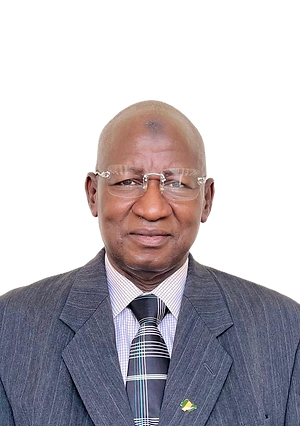2023 General Election: Betrayal, disloyalty as awful terms of engagement in politics, gov’t, business (I), by Dr Aminu Salihu Yakudima
Let me start with the wise saying of Karl Marx (1818- 1883) in his theory of economic determinism, “crisis more than peaceful growth is the key to progress”. Marx further explained the complication in pursuance of basic needs. According to him, most people often maintained mutual co-operation with others in pursuit of basic needs and aspirations for higher esteem. These basic needs are food, shelter and clothing. When People are successful, they engaged in antagonistic co-operation, showing unworthy relationships, deception and exhibition of negative tendencies towards others, with or without reasons.
We may relate this theory with the current Nigerian enigma, behaviour and negative disposition of some of her leaders and followers alike in the context of how they behave while in power or in their social conduct. Leaders in the corporate world exhibit the same conduct towards subordinate to whom they often demonstrate superiority complex with slite advantage they have over them.
The effects of these tendencies to dignity of labour and meritocracy are enormous. In sectors of the economy and agencies of government that they control, their negative behaviours stand out. These non benevolent leaders still suffices in bad light. The crisis in many African countries can be attributed to these behaviours.
Betrayal, disloyalty and deception have created awful relationship among Nigerians. This often occurred in mentorship relationship within political and business class, such as one on one or collective transactions in various areas of human endeavour. There is a consequential insecurity, no less damning that the general physical insecurity most Nigerians feel today. Nothing and nobody is enjoying security in the country.
Perception of Nigerians tend to differ relative to what constitutes disloyalty and betrayal, but these behaviours are especially prevalent in political organisations particularly political party, the government and in business associations. The political angle has particularly exacerbated the social problems of Nigerians. Individuals experiences of betrayal, disloyalty and deception resulting in medical intervention and even a recourse to spiritual solace define the lives of many victims. Disloyalty therefore has a price, as nobody ends well in this world who is disposed as such, be it in ordinary social interaction, in government, politics or business.
Succession to political leadership in Nigeria has not been based on good governance creteria, but instead on fear of political trajectory. Throughout civil rule and during the military era , there was no time a vice president succeeded a president despite the core values, experience and the quality of leadership such transition would have brought to Nigeria.
We should not confused this observation to the case of Dr. Goodluck Ebele Jonathan’s succession to presidency on the 10th of February, 2010 which was effected under special parliamentary procedures known as doctrine of necessity based on the provisions of 1999 Constitution of the Federal Republic of Nigeria as amended. Jonathan was the vice president at the time he succeeded president, Alhaji Umaru Musa Yardua, GCFR, after his demise.
READ ALSO:Gangsterism and incivility in Nigerian politics, by Aminu Salihu Yakudima
The late Dr. Alex Ekweme, GCON, first vice President of the Federal Republic of Nigeria, whose tenure covered 1979 -1983 lost the opportunity of becoming a President twice. The first time was as result of military coup d’etat in 1983, and the second, during primary election to secure the nomination of the People’s Democratic Party (PDP) in 1998.
Ekweme was a victim of betrayal perpetrated within and outside his presidential campaign council. The ringleaders were people close to him. Their perfidy denied the Igbo people a promising opportunity to have one of their own elected President of Nigeria. It was a huge opportunity lost by the South Easterners.
Alhaji Atiku Abubakar, GCON, former vice President of Nigeria for two tenures from 1999-2003 and 2003-2007 was another example of a Presidential hopeful who suffered betrayal of trust. He is yet to be President after several concerted efforts, in spite of his brilliant ideas. His published roadmap ‘my covenant with Nigerians’ is full of these ideas to develop the country.
Atiku has sought the nomination for President four times, and has secured the ticket thrice. He had been a presidential candidate under the platforms of Action Congress, (AC) and the Peoples Democratic Party, (PDP ) in 2007 and 2019 general elections respectively. Again, he is the Presidential Candidate of PDP in the forthcoming 2023 general elections scheduled for 25th of February.
This time around, Atiku Abubakar has a good chance of winning the presidential election from all assessment. He did an excellent campaign and carried out good political activities. His several participation in the Presidential elections, cogent experience in national politics and leadership skills as well as national and international connections, Atiku Abubakar is the man to watch in forthcoming 2023 general elections.
Definitely, Atiku Abubakar and Ahmed Tinubu will engage each other in a straight fight to slug it out. Atiku’s credentials still remained intimidating in the Nigerian political space. His political anticidence in bringing unity by building cohesion over the years will attract sympathy across the country to massively vote for him. Many will indiscriminately look at the umbrella and ensure that PDP bounce back by entrusting Atiku Abubakar with the critical opportunity to provide good leadership, which Nigeria need the most amidst socioeconomic and political challenges of the present situations.
God save Nigeria.
Follow the Neptune Prime channel on WhatsApp: https://whatsapp.com/channel/0029Va74ZvU2v1IqKByXoX3d
Do you have breaking news, interview request, opinion, suggestion, or want your event covered? Email us at neptuneprime2233@gmail.com


